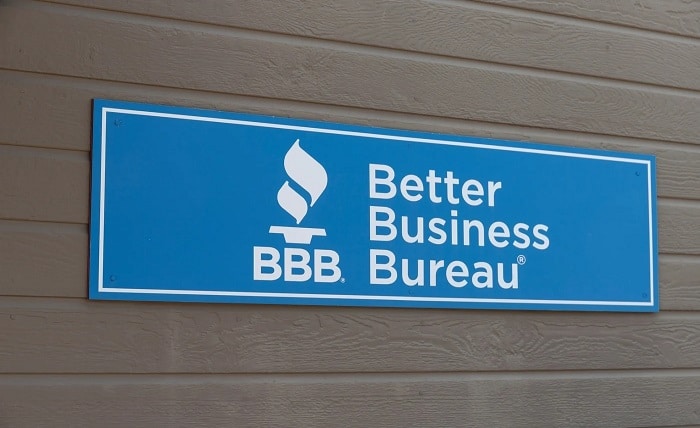A Complete Guide to the Better Business Bureau: What You Need to Know

The Better Business Bureau (BBB) is a non-profit organization that plays a vital role in helping consumers make informed decisions while fostering trust between businesses and their customers. It’s been an essential part of the business world for more than a century, acting as a bridge between companies and the people they serve. But what exactly does the Better Business Bureau do? And how does it impact the businesses it works with and the consumers who rely on its information?
In this comprehensive guide, we will explore the history, mission, services, and impact of the Better Business Bureau. You will learn how the BBB operates, how it evaluates businesses, and why it is essential to both consumers and business owners alike. This post will also highlight the pros and cons of maintaining a BBB accreditation and how businesses can benefit from this important resource.
The History of the Better Business Bureau
The Better Business Bureau was founded in 1912 by a group of business leaders in the United States who recognized the need for a reliable, impartial organization that could mediate disputes between businesses and consumers. At the time, the market was flooded with dishonest businesses that were taking advantage of consumers, and there was a need for a system that could hold businesses accountable.
The goal of the Better Business Bureau was simple: to promote trust in the marketplace. Over the years, the BBB has grown into a well-respected and widely recognized institution that operates in the United States, Canada, and Mexico. Today, the Better Business Bureau works with over 5 million businesses and serves millions of consumers who rely on its services.
The Mission and Goals of the Better Business Bureau
The mission of the Better Business Bureau is straightforward—promote trust in the marketplace. This mission is achieved through several key goals:
- Fostering Trust Between Businesses and Consumers: The Better Business Bureau helps build trust by encouraging transparency, ethical business practices, and honest advertising.
- Providing Information to Consumers: BBB offers valuable resources to help consumers make informed decisions, including business reviews, complaint resolution, and ratings of businesses.
- Promoting Ethical Business Practices: BBB’s Code of Business Practices is designed to ensure that businesses are committed to honesty, transparency, and fairness in their dealings with customers.
- Resolving Disputes: One of the BBB’s primary functions is to mediate disputes between consumers and businesses. This process helps ensure that consumers’ complaints are addressed fairly and promptly.
- Accreditation: The BBB accredits businesses that meet its high standards for honesty and transparency. Businesses that earn this accreditation gain credibility and trustworthiness in the eyes of consumers.
The Better Business Bureau’s dedication to these goals has helped it remain a trusted and valuable resource for over a century.
How the Better Business Bureau Evaluates Businesses
The Better Business Bureau evaluates businesses based on a set of criteria designed to promote trustworthiness and ethical conduct. When a business applies for BBB accreditation, it is reviewed against the following standards:
1. Honesty and Transparency:
The BBB evaluates a business’s advertising, pricing, and sales practices to ensure that they are clear, truthful, and not misleading.
2. Complaint Resolution:
Businesses must have a system in place for addressing customer complaints quickly and effectively. The BBB monitors how well a company resolves complaints and whether it takes customer concerns seriously.
3. Commitment to Ethical Business Practices:
Businesses are expected to adhere to high standards of ethical conduct in their operations. This includes treating customers fairly, honoring warranties, and adhering to all applicable laws and regulations.
4. Transparency in Business Practices:
The Better Business Bureau evaluates how openly businesses disclose their policies, fees, and any potential conflicts of interest.
Once a business is evaluated and meets the BBB’s standards, it can earn accreditation. This accreditation is a mark of trust and credibility that signals to consumers that the business is committed to high standards of ethical practice.
How to Get BBB Accreditation
Obtaining Better Business Bureau accreditation is a coveted achievement for many businesses. The process of becoming accredited is relatively straightforward but requires a commitment to ethical business practices. Here’s how a business can apply for BBB accreditation:
- Ensure Your Business Meets BBB Standards: Before applying, the business should review the BBB’s Code of Business Practices to ensure it is compliant with the required standards.
- Submit an Application: The business submits an application to the BBB, which includes providing company information, reviewing past complaints (if applicable), and providing details about how the business handles consumer complaints.
- Pay the Accreditation Fee: Once the application is submitted, the business must pay an annual fee for accreditation. This fee varies depending on the size of the business and its location.
- Undergo a Review: The BBB conducts a thorough review of the business’s practices, financial records, and reputation. This review helps ensure that the business adheres to the BBB’s high standards.
- Receive Accreditation: If the business passes the review, it receives BBB accreditation, which allows it to display the BBB logo on its website, marketing materials, and business location.
Being accredited by the Better Business Bureau is an excellent way to demonstrate to consumers that your business is trustworthy, ethical, and committed to customer satisfaction.
The Pros and Cons of Better Business Bureau Accreditation
While BBB accreditation offers numerous advantages for businesses, it also has some potential drawbacks. Here are the main pros and cons of BBB accreditation:
Pros:
- Credibility and Trust: Being accredited by the BBB increases your business’s credibility and trustworthiness in the eyes of consumers. The BBB logo signals that your business is committed to ethical practices and customer satisfaction.
- Increased Visibility: Businesses with BBB accreditation often benefit from increased visibility on the BBB’s website, which can drive traffic and attract more customers.
- Dispute Resolution Support: As a BBB-accredited business, you gain access to the organization’s dispute resolution services, which can help resolve conflicts with consumers quickly and professionally.
- Consumer Confidence: Many consumers actively look for BBB accreditation when choosing which businesses to trust. Having this seal of approval can help attract and retain customers.
Cons:
- Cost: While the benefits of BBB accreditation are significant, there is an annual fee that businesses must pay to maintain their status. The cost can be a deterrent for small businesses.
- Stringent Standards: The BBB’s requirements for accreditation are rigorous, and businesses must meet high standards to be accepted. Some businesses may find these standards difficult to maintain.
- Potential for Complaints: Even accredited businesses are subject to customer complaints. If a business receives a significant number of complaints, it may risk losing its accreditation.
Despite these drawbacks, many businesses find that the benefits of BBB accreditation outweigh the costs and challenges.
How the Better Business Bureau Helps Consumers
The Better Business Bureau is an invaluable resource for consumers who want to make informed decisions about businesses and services. The BBB provides a range of services designed to protect and empower consumers:
- Business Reviews: Consumers can access detailed reviews of businesses through the BBB’s website. These reviews include ratings, complaints, and how businesses resolve customer issues.
- Complaint Resolution: If consumers have a complaint against a business, the BBB offers a platform for mediation and resolution. This ensures that consumers’ concerns are addressed fairly and promptly.
- Scam Alerts and Warnings: The BBB regularly issues alerts and warnings about scams, fraud, and dishonest business practices. Consumers can stay informed and avoid falling victim to scams.
- Accredited Business Directory: Consumers can search for BBB-accredited businesses in their area, ensuring that they choose businesses that have been vetted for ethical practices.
By offering these services, the Better Business Bureau helps consumers avoid poor experiences and make more informed decisions when dealing with businesses.
Conclusion
The Better Business Bureau plays a crucial role in fostering trust between businesses and consumers. Whether you’re a business owner looking to build credibility or a consumer seeking reliable information, the BBB is a valuable resource. Through its accreditation process, consumer protection services, and dispute resolution efforts, the Better Business Bureau helps ensure that businesses operate ethically and customers are treated fairly.
In a world where trust can be hard to come by, the Better Business Bureau stands as a beacon of reliability, helping businesses and consumers navigate the marketplace with confidence. For businesses looking to gain the trust of their customers, accreditation with the BBB is a powerful tool for building long-term success.
FAQs
1. What is the Better Business Bureau (BBB)?
The Better Business Bureau is a non-profit organization that promotes trust between businesses and consumers by providing accreditation, reviews, and dispute resolution services.
2. How does BBB accreditation benefit my business?
BBB accreditation provides your business with credibility, improves customer trust, offers dispute resolution services, and enhances visibility to potential customers.
3. How can I get BBB accreditation?
To obtain BBB accreditation, your business must meet the BBB’s high standards for honesty, transparency, and complaint resolution. You’ll also need to pay an annual fee.
4. Does BBB accreditation cost money?
Yes, businesses must pay an annual fee to maintain their BBB accreditation. The cost varies based on the size and location of the business.
5. How does the BBB help consumers?
The BBB helps consumers by providing business reviews, offering dispute resolution services, issuing scam warnings, and directing them to accredited businesses.




